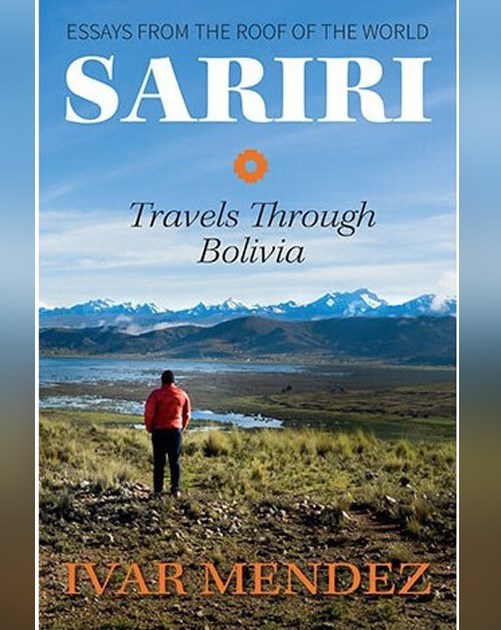“Sariri: Travels Through Bolivia”
by Ivar Mendez
Published by Your Nickel's Worth Publishing
$24.95 ISBN 9781988783796
This is a fascinating read to add to your collection of travel books. You’ll find 20 chapters in Sariri (not counting the introduction, afterword and glossary.) Each chapter covers a specific place in Bolivia, a terrific way to lay out a book about a country. Close to the front of the book you’ll find a map that pinpoints the location of each chapter - so handy.
If you are confused by the title of this book, “sariri” is the Bolivian word for the nature of a traveller – a pilgrim on a spiritual quest, a traveller in search of new horizons, adventures and cultures. That sums up Mendez perfectly.
Mendez does an amazing job of describing each place he visits in Bolivia without –°¿∂ ”∆µ flowery. I love that. For example, when detailing the houses in the village of Culpina, he writes, “A row of brick houses ... are still in use. These small red houses with chimneys look like they belong in an English town rather than in the middle of the Bolivian pampas.”
Of all the interesting places Mendez wrote about, the Uyuni salt flats grabbed my attention and are now on my bucket travel list. Located in the southwest corner of Bolivia, the salt flats are the largest reflective surface on Earth and are easily seen from space.
In the chapter on the Madre de Dios River, Mendez gives a shout out to Saskatchewan. He was sharing a story about landing on a beach and –°¿∂ ”∆µ immediately swarmed by thousands of yellow butterflies that reminded him of the honeybee colonies that he’d seen in Saskatchewan. He gives another nod to our province when he passes a field of flowers that made him think of Saskatchewan’s yellow canola fields.
The pictures in the book do an extraordinary job of showing the locations that Mendez vividly describes with his words. The country is a visual masterpiece. There is a picture of Mendez overlooking the Charazani Valley that gave me chills, as it is so stunning. His photo of Mount Illimani is National Geographic worthy. Each chapter includes one full page picture of the area that is written about.
Sariri was endlessly entertaining as well as informative. I learned about singani, the national drink of Bolivia that sounds like a flavour bomb for the taste buds. I now know that Bolivia has a centuries-old tradition of “medicine carriers,” famed travelling healers of the Andes. I was fascinated to read that some areas of Bolivia are so arid that they’ve never had a recorded rainfall. I could go on but instead I recommend you pick a copy of Sariri and enjoy this engrossing read for yourself.
This book is available at your local bookstore or from www.skbooks.com




